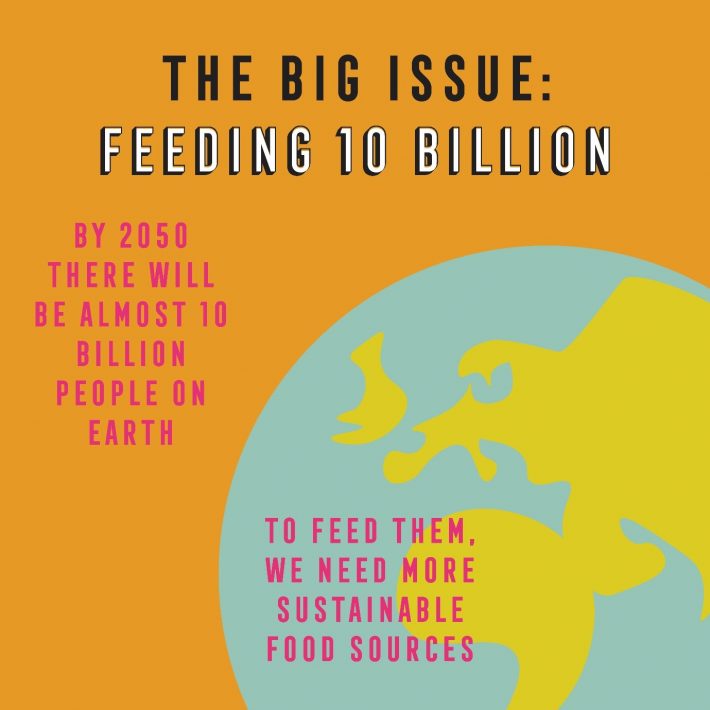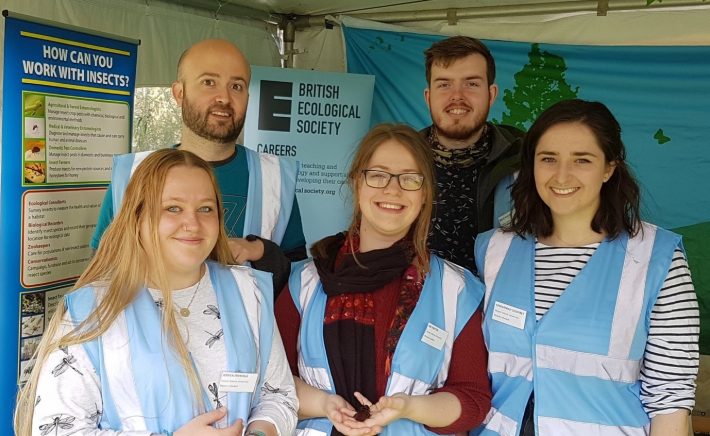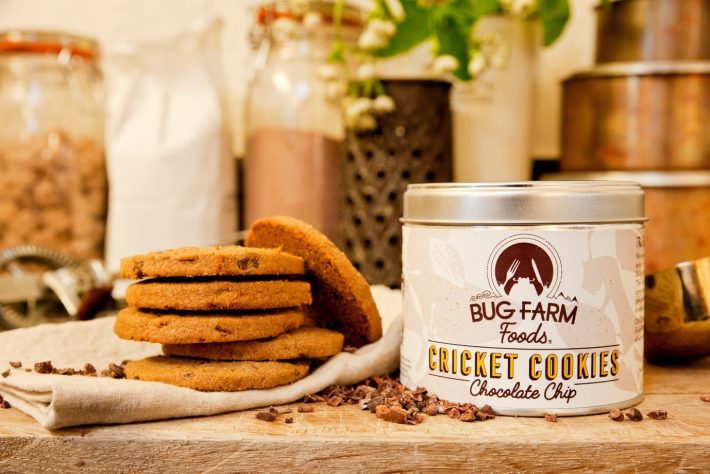Field to Fork Festival: insects and the future of food
Does a sustainable future of food involve insects? The British Ecological Society teamed up with the Royal Entomological Society (RES) at Field to Fork Festival to ask visitors this question, whilst sharing how important insects are to food production today, and the huge role they might play in our future diets.

Running for the second year, the hugely popular Field to Fork Festival at Harper Adams University, Shropshire, attracted more than 10,000 people through its gates. With over 1,000 visitors to our exhibition alone, BES and RES members from Harper Adams’s entomology masters course were kept very busy running a range of exciting entomological activities in our gazebo!

During a live cooking show with Chef Chris Burt and Dr Chris Jeffs of the BES, the audience started the day off with an appetising crunch. Using innovative products and recipes sent up especially from Bug Farm Foods, the audience got to taste delicious insect bolognaise and cricket cookies whilst learning about insect production for food! Chris explained how insect products such as mealworm and cricket flours, through boasting a protein content even greater than beef, can enrich familiar dishes and could be a nutritious and sustainable addition to our future diets.

Back at our gazebo, guests of all ages held hissing cockroaches and stick insects, with even initially apprehensive handlers leaving with a new-found appreciation of the importance of insects within healthy ecosystems. Our “Friends and Foes” area revealed even more fascinating facts –including how green-fingered gardeners can mail-order bumblebee nests to pollinate their crops, and parasitoid wasps to control greenhouse pests. Many visitors were also astounded that ladybird larvae look nothing like adults, sporting striking bright orange and black spikes.

For those who liked getting their hands dirty, another activity let them create an ‘insect rave’. Using different coloured fluorescent powder and UV torches, visitors learnt how scientists can track not only the movement of insect pests at night, but study how they interact with each other by transferring powders between themselves. This guides the application of fungal pathogen powders used as a biocontrol method that the insects propagate amongst themselves, minimising the need to mass-spray pesticides.

Chris Jeffs concluded:
“Overall, the day was a huge success! It’s always fantastic to work with other societies such as the RES who share our goals of sharing the excitement of ecology.”
Studying the importance of insects in food production will be vital as we plan to feed 10 billion people by 2050. Perhaps as appetites for sustainable diet options grow, it may be sooner than we think before insects form a staple ingredient in our daily meals.
If you would like to attend an event or collaborate with the British Ecological Society, or have ideas about events we should attend, please contact Chris Jeffs chrisj@britishecologicalsociety.org
Like what we stand for?
Support our mission and help develop the next generation of ecologists by donating to the British Ecological Society.